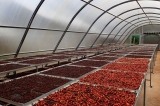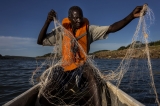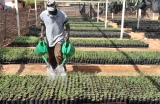Our work
FAO advocates that yearly investment in agriculture needs to increase substantially to close the gap between what low- and middle-income countries have invested annually and the investment needed to feed the world by 2050. To this end, FAO works closely with governments, international financing institutions and other partners to promote greater and more effective public and private investment to improve agricultural productivity, develop value chains, enhance nutrition, improve rural livelihoods and safeguard the natural environment.
Investment is a critical engine for each country to multiply its impact and achieve scale, producing results that are aligned with the Sustainable Development Goals. |
With a strong presence worldwide, FAO offers developing and transition countries a wide range of investment support services. FAO brings innovation, knowledge and technical and policy expertise to bear on the investment process, providing support to countries in the design, implementation and evaluation of investment strategies, plans, programmes and projects. FAO advises governments on policy and legislation, facilitates public-private policy dialogue, undertakes sector and value chain studies and analyses trends and impacts of foreign agricultural investment in developing countries. FAO’s longstanding and close relationships with the countries enables them to develop multi-stakeholder and multi-partner investment strategies aligned with national priorities.
FAO has developed various tools and learning resources and facilitates peer learning through study tours and formal training on topics such as investment planning and design, monitoring and evaluation, social analysis and climate change mainstreaming, often in partnership with national and regional institutions.
By area of work






